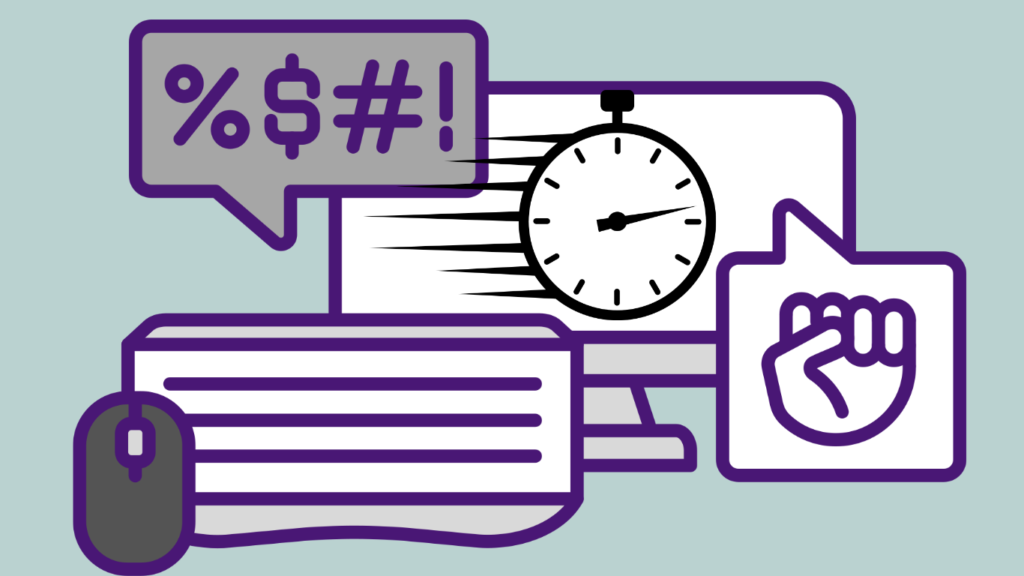Are you like a normal person struggling to maximise your productivity by managing the hours you spend online? Read this!
I grew up on a farm outside of Nokia, Finland and spent most of my days outside in the dirt.
If that name sounds familiar to you, it’s because in Nokia the early cellphone company of the same name was born. My family got a computer when I was fairly young, and soon, I spent much of my time playing a soccer game on our computer instead of actually, you know, playing soccer.
Eventually, my parents put their foot down.
They forced me off the computer and insisted I spend more time outside. And while I was annoyed at the time, in retrospect I wouldn’t trade those childhood years on the farm for anything.
As I grew up and started working in corporate jobs, I naturally found myself in front of a computer screen more often than I liked. After a while, I decided I didn’t want to be glued to a screen all waking hours.
And I know a lot of people feel this way, too.
Most of us have a love-hate relationship with our devices. We depend on them for so much—keeping up with loved ones, navigating new cities, connecting with clients, and remembering meetings.
As a company leader myself, I nonetheless make a point to spend only 15 hours a week on my computer—max—which makes me feel more productive, efficient, and creative.
Here’s why I cut my screen time down and how you can benefit from it too:
We’re all online well past the point of productivity.
Americans spend nearly half the day interacting with our smartphones.
Whether it’s binge-watching the latest show, shopping for home decor, or scrolling through yet another album of baby pictures on social media, we are living more and more of our lives in the digital world.
The fact that we’re connected 24/7 has also changed the way we work. In the office, we feel like being a good employee means always being available and connected.
One of the most toxic myths we tell ourselves is that being online more equates to more productivity.
The ability to connect with coworkers and clients may seem conducive to getting work done, but it’s often extremely distracting. You can be deep in a flow state on a project, and suddenly, you’re interrupted by a Slack message or email. The message isn’t urgent, yet you find yourself compelled to respond anyway. Once your focus is broken, it’s hard to get back.
When you really analyze what you’re doing when you’re online, you’ll probably find that you’re wasting a lot of time.
The only way to stop the internet from taking up all your time and concentration is to disconnect.
When you unplug, you’ll get your focus back, and you’ll be less tempted to waste time on things like email, instant messaging, and social media. You’ll also gain the added benefit of reduced eye strain and improved sleep—as the blue light from our screens interferes with our body’s circadian rhythms.
There’s a (limited) time and a place to toil away on your devices, and it isn’t all day every day.
Disconnecting is easier than you think.
Being online less sounds difficult, but it’s not nearly as hard as it seems.
A helpful trick I started doing years ago was to install a time-tracker on my computer, which allows me to see how much time I’ve spent online each week. Every Friday afternoon, I examine the hours and compare.
Say this week I spent seven hours on the computer, and last week I spent 13. Did I feel better or worse? Did I get more done?
Once I started auditing myself, I figured out that about 15 hours my sweet spot—but it’s different for everyone.
Examine your habits carefully. If you feel like you’re wasting time online, figure out how to maximize efficiency.
One way to do this is the Pomodoro Method. Crafted by Francesco Cirillo in 1992, this method involves the following steps:
- Choose a task to be accomplished
- Set your timer to 25 minutes
- Work on the task until the timer rings, then put a checkmark on your sheet of paper to denote the passage of a timer
- Take a short break (Five minutes is OK)
- Every four checkmarks, take a longer break
The Pomodoro Method is a cyclical system. You work in short sprints, which makes sure you’re consistently productive. You also get to take regular breaks that bolster your motivation and keep you creative.
Once you experience the benefits of strategically logging off, you won’t look back.
The most important work takes place off-screen.
As the founder of Four Sigmatic, I get paid to think about big picture stuff—like product development, strategy, branding, and communicating with clients and my team. Most of these tasks don’t require a computer to do well.
When you’re on a computer, you’re more likely to be consuming than creating. So much of what’s online isn’t valuable—it’s just clutter. And if you’re reading too much of it you don’t have space for creativity and original thought.
Creating something new as a founder requires effective communication with the people helping you build it.
And ultimately, the most high-impact way to communicate is in-person. If you can’t meet face-to-face, then video chat is your next best bet. After that, a phone call. Text and email just aren’t as productive. After all, you can be emailing and texting all day and getting nothing across. If you’re going to be online, make sure it’s only to do what’s necessary and move the more important stuff off-screen.
When you take a good, hard look at your relationship with technology and strategize a way to make the most of it, you’ll be a better, more productive, and more creative version of yourself.
This story originally appeared on Quora as an answer by Tero Isokauppila.






